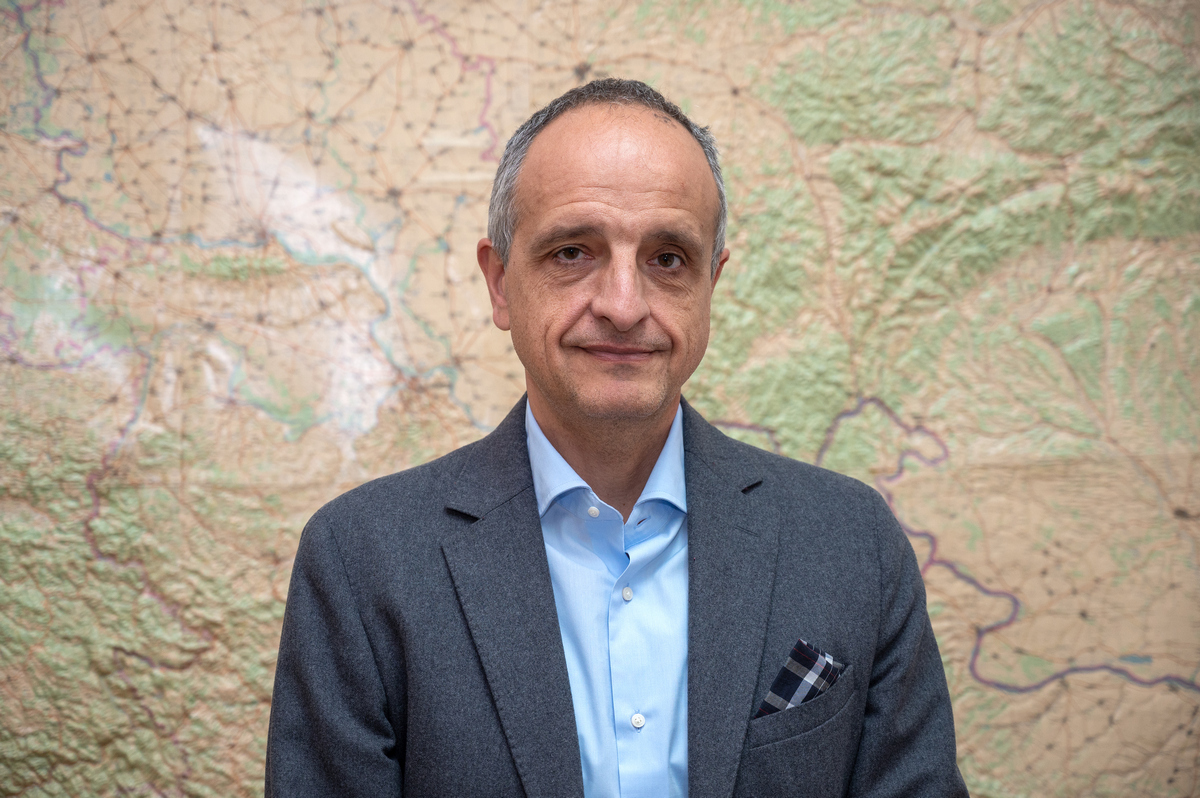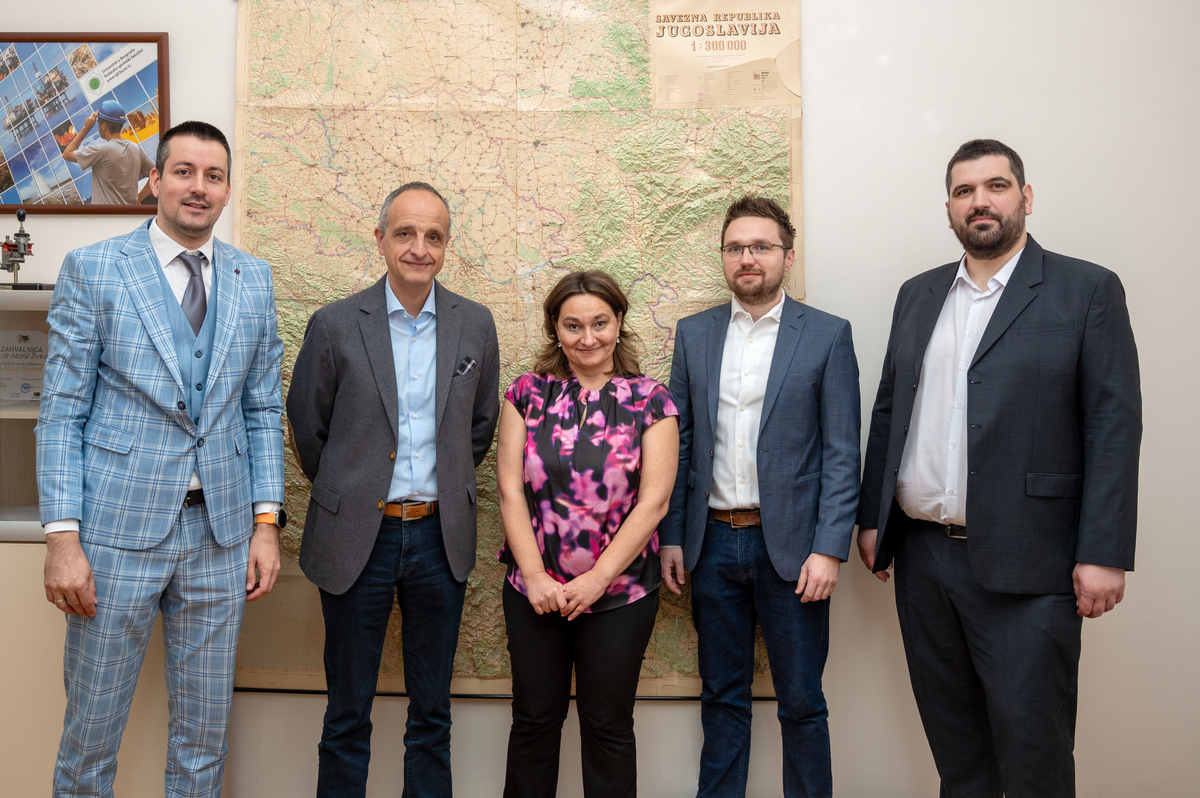Project Title
Framework for accelerating green transition in households
Article Author and Principal Investigator of the Project
Dr. Dejan Ivezić
Full Professor, Faculty of Mining and Geology, University of Belgrade

Project FF GreEN is focused on change and use of energy in households. The idea behind the project is to help and accelerate the transition towards application of renewable sources of energy end more energy-efficient technology in households around Serbia. This process is called energy transition. During the project, computer models that describe energy transition in households are made and they encompass the technical, economic, and sociological aspects of that process and its limitations. Project team will propose a path and means how to execute, in the easiest and most efficient manner, this process with minimal influence on the environment.
In households, significant amount of energy is used. How much energy is used and what is the impact of this usage on the environment depends on technologies applied but also on the habits and behavior of household members. The project deals with technology analysis referring to technologies that are currently used in households and it will also propose new, more energy-efficient technologies that are based on renewable sources of energy. Detailed research will be done, and household surveys will be included to establish the habits of household members when it comes to energy use and also regarding what they would wish to change in this aspect. The optimization of technology choices will be performed based on technological parameters of equipment and bearing in mind the limitations that derive from socio economic and culture characteristics of households. A detailed plan of energy transition in a household will be made for a selected municipality in the Republic of Serbia based on models made and surveys done, and this plan will consider energy, ecological, financial and broader social aspects of this process.
In addition to stimulating increased participation of renewable energy sources and efficiency of energy use in households, specific objectives of the project are related to:
- Data systematization when it comes to advanced technologies of energy use in households
- Collecting and analyzing data on socioeconomic and cultural aspects related to the use of energy in households
- Improving energy management and stimulating decision making processes by including innovative software tools and procedures in the process of energy planning policy formation, scenario development and estimation of expected effects
- Roadmap development for energy transition in household sector until 2050 for the selected municipality
- Establishing communication channels between researchers, decision makers and all other interested parties (social and market stakeholders)
The project has the ambition to provide a contribution to science but also to practice by integrating three different approaches and creating an innovative framework for energy planning. Integration and interaction of expert knowledge related to analysis and modeling of energy systems, „Participatory backcasting” approach which includes a broad spectrum of interested parties, and a simulation of behavior of households through modeling based on agents („Agent-based modeling”) will be established.
The end goal is to establish a framework for follow-up, analysis and evaluation of instruments of energy policy. This framework mainly makes possible testing of political instruments before their implementation, but it also makes possible dynamic following of cause and consequence relations in a real system. An innovative methodological approach can be applied to other planning processes in the energy sector as well, especially when a group of users is strongly heterogeneous, and it can even be replicated in other areas and sectors when it is important to take into consideration specific knowledge. This research will contribute to resolving open questions not only in engineering sciences but also in socio-humanistic sciences, creating a bridge for further joint investigation.
Project results that have so far been obtained have been published at two international conferences, and the publishing of results at other science conferences is expected.
In addition, as a result of project work, following materials will be publicly available on project website:
- Monography on advanced heating and cooling technologies in residential sector
- Report on research executed, related to sociological aspects off energy use in households
- Technical report on analysis of expenses during life cycle and reduction of emissions of technologies taken into consideration, based on the RES in households
- Tool for supporting energy transition in households (software)
- Guide for green transition in households – handbook
- Roadmap (with action plans) for energy transition of households for selected municipality until 2050
Decision makers, managers in the energy field, public and utility companies, as well as interested citizens, will receive a detailed handbook with instructions for the application of the proposed methodology framework. The project will provide models and estimations of household energy use divided by activity end energy source as well as proposals of the optimal conceptual solutions for meeting energy needs. When it comes to promoting project results, significant help is expected from the Standing Conference of Cities and Municipalities of Serbia conference, umbrella organization of local self-governance units in Serbia, which has supported this project since the competition application phase.
The results of this research will directly benefit local communities, cities and settlements within the municipalities, given that the proposed methodological framework for energy planning will be applied/tested on a specific local community. The local self-governance unit will receive an action plan with identified appropriate measures and activities for more intense use of renewable energy sources for heating/cooling and production of electric energy in individual households. Given that the RESs are of local origin and the energy produced is mainly used locally, this will strongly stimulate the local economic development, a fairer transition, reduction of unemployment end it will improve life standard end life conditions.
Program:
Program PRISMA
Project Budget:
EUR 263,919
Scientific and Research Organizations:
- Faculty of Mining and Geology, University of Belgrade
- Faculty of Mechanical Engineering, University of Belgrade,
- Inovation Centre of the Faculty of Mechanical Engineering, University of Belgrade
- Faculty of Philosophy, University of Belgrade
- Faculty of Agriculture, University of Belgrade
Project Team Members:
- Dr. Marija Živković, Full Professor, Faculty of Mining and Geology
- Dr. Mirko Komatina, Full Professor, Faculty of Mechanical Engineering
- Dr. Dragi Antonijević, Principal Research Fellow, Innovation Centre of the Faculty of Mechanical Engineering
- Dr. Dušan Mojić, Full Professor, Faculty of Philosophy
- Dr. Olivera Ećim-Djurić, Associate Professor, Faculty of Agriculture
- Dr. Dušan Danilović, Associate Professor, Faculty of Mining and Geology
- Dr. Boban Pavlović, Research Associate, Faculty of Mining and Geology
- Dr. Miroslav Crnogorac, Assistant Professor, Faculty of Mining and Geology
- Dr. Aleksandar Madžarević, Assistant Professor, Faculty of Mining and Geology
- Dr. Dimitrije Manić, Research Associate, Inovation Centre of the Faculty of Mechanical Engineering
